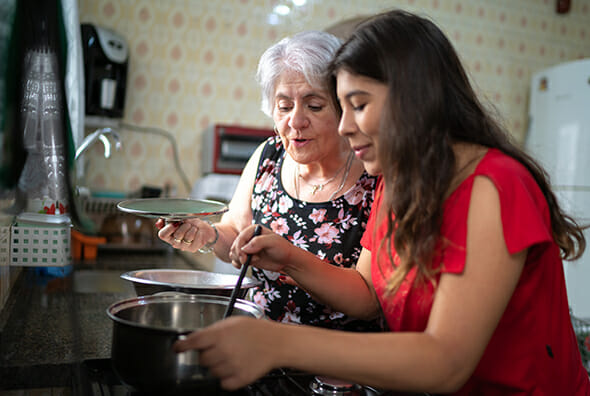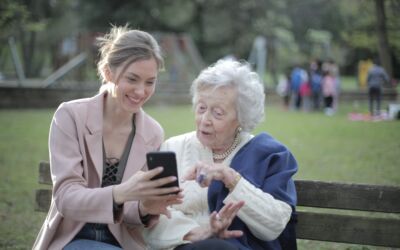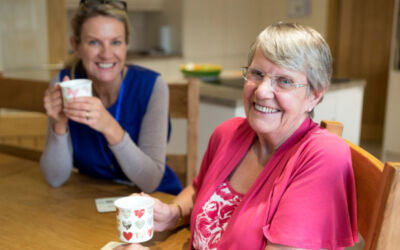When is it time to consider help for mom or dad at home?
We have been receiving more calls than ever during the pandemic from families looking for guidance on how to help their loved one remain safe and healthy in their own home. By the time families are reaching out for guidance, they are already concerned that mom or dad need some extra help. Perhaps mom or dad have fallen, been to hospital, had a diagnosis of chronic illness such as diabetes, dementia or Alzheimer’s, are finding it difficult to keep up with household management, or have experienced mobility or hearing loss. Families might notice expired items gathering in the refrigerator or cupboard shelves, mail piling up without being addressed or mom and dad aren’t eating as well as they should. These are all signs that some extra help is needed to support mom or dad at home.
When it comes to making a choice about living in their own home or moving to a retirement community, many seniors would prefer to live in their own homes as long as possible. This can be achieved with some extra support for meals, medication management and household management such as grocery shopping, meal preparation, laundry and ensuring the garbage and recycling goes out on the correct date. We also care for pets along with their people in order to ensure Fido or Fluffy can remain with their beloved owners.
Private home care is paid for by the client. This can be a great first step to helping your loved one remain at home because the amount of care can be tailored and scheduled according to the client’s needs. For example, if the client is an early riser, helping them with two meals from breakfast to lunch and leaving them to rest in the afternoon is a great schedule. On the other hand, if family are available during the day but have other obligations in the evening, having a schedule for dinner to bed time ensures mom or dad have a good meal and their evening medication. Whatever the schedule, home care can help.
Having home care in place is also a great safety strategy, ensuring a consistent set of eyes are on mom and dad to check to see if they are eating, taking their medication, if things are changing in their home environment that should be communicated with family. As an example, mom or dad’s physical condition may change and they may need a walker or raised toilet seat to make mobility easier. Also, having a consistent schedule and caregiver means that subtle changes in health can be quickly noticed and addressed. For example, urinary tract infections are a common problem among our elderly clients and can present as confusion, weakness or even delirium. If a caregiver notices these changes, they can quickly let the family know so a doctor’s appointment can be made. On other occasions, caregivers have arrived to find the client has had a fall and can’t describe what has happened, and a call to family and 911 is placed.
Private home care is a great first step to helping mom and dad stay safe at home. When the time comes to look at other options for mom and dad’s care, home care businesses would have wonderful relationships with many community partners and would be happy to provide any information that might be beneficial in the next step in the client’s circle of care. The next step might be bringing in additional home care support from the provincial healthcare system. Also, we have helped many clients transition from home to retirement living and also to long term care. Helping families with research and even touring some facilities with the clients helps to provide peace of mind that the client will be moving into an environment that supports their next phase of life. We can also continue to care for clients in retirement communities and long-term care to ensure they have all their needs met.
If you have concerns that mom or dad may need some extra help at home, please contact us!




